Earth & Nature: 5 of 10
-
81.
 +39
+39Where Do Millions of Snakes Disappear to?
-
82.
 +30
+30Governments spend US$22 billion a year helping the fishing industry empty our oceans. This injustice must end
Governments all over the world are propping up overfishing. Now scientists have penned an open letter calling on trade ministers to implement stricter regulations against harmful fisheries subsidies.
-
83.
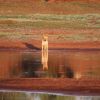 +42
+42Did Australia's First Peoples domesticate dingoes? They certainly buried them with great care
There’s been a long-standing debate over whether dingoes started out wild or domesticated. One thing is clear – they had a close relationship with First Peoples.
-
84.
 +23
+23Scent of the afterlife? Scientists re-create recipe for Egyptian mummification balm
Beeswax, plant oils, animal fats, bitumen, coniferous resins, coumarin, and benzoic acid.
-
85.
 +43
+43VA hospital's IT snafu blamed on cat's keyboard surfing
US govt confirms outage, leaves feline in quantum state of uncertainty
-
86.
 +28
+28An Energy Saving House from 3400 Years Ago
It is probable that more prehistoric houses with a construction of two wattles were built than has been estimated so far—thus making use of the good insulation.
-
87.
 +44
+44Homeowners get revenge on money-grubbing HOA that tried to fine them for hurricane-proof roof: ‘Fine print gets you every time’
"The HOA was strapped for money."
-
88.
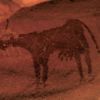 +24
+24Rock art indicates cows once grazed a lush, green Sahara
The discovery of rare painted rock art featuring cattle in one of the driest parts of the Sahara Desert indicates that the region was once covered in grass, swamps and waterholes, making it a resource-rich home to a diverse community of animal species.
-
89.
 +18
+18Teen Builds His Own Nuclear Fusion Reactor At College
Cesare Mencarini’s recent extended project qualification (EPQ) earned him an “A” for his studies in the United Kingdom—and became, it is believed, the first nuclear reactor built in a school environment.
-
90.
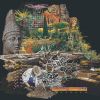 +32
+32How technology helped archaeologists dig deeper
Digital tools can help us understand ancient cities and the people who lived in them.
-
91.
 +44
+44Antibody Shows Promise for Preventing Organ Rejection After Transplantation
DURHAM, N.C. – A man-made antibody successfully prevented organ rejection when tested in primates that had undergone a kidney transplant, Duke Health researchers report. The finding clears the way for the new monoclonal antibody to move forward in human clinical trials. Results of the study appear online Aug. 30 in the journal Science Translational Medicine.
-
92.
 +44
+44The Lizard's Tale 105: Island Test Tubes, Part 1
-
93.
 +28
+28At least 60% of US population may face ‘forever chemicals’ in tap water, tests suggest
Federal tests of one-third of water systems find 70 million Americans exposed to PFAS – suggesting 200 million affected overall
-
94.
 +29
+29Food industry’s favorite ingredient has been killing us, slowly.
-
95.
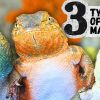 +21
+21Sexual Reproduction Is Already Weird, but These Animals Make It Weirder! Much Weirder...
-
96.
 +36
+36Global warming might not happen quite as fast as we thought – here’s why
Plants will absorb more carbon dioxide than predicted, meaning models could be overestimating the speed which the planet will heat up
-
97.
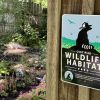 +23
+23Certify - Garden for Wildlife | National Wildlife Federation
Anyone can create a welcoming haven for local wildlife. Turning your yard, balcony container garden, schoolyard, work landscape, or roadside green space into a Certified Wildlife Habitat® is fun, easy and makes a big difference for neighborhood wildlife.
-
98.
 +33
+33Cats Kill a Staggering Number of Species across the World
Domestic cats are cherished human companions, but a new study shows the enormous breadth of species the felines prey on when they are left to roam freely
-
99.
 +41
+41Can a map of the ocean floor be crowdsourced?
Many maps of the ocean floor are decades old. The race is on to properly chart them by 2030 – and crowdsourcing could be part of the answer.
-
100.
 +41
+41Plastic Bag Found at the Bottom of World’s Deepest Ocean Trench
Even one of the most remote places on Earth couldn’t hide from the scourge of plastic trash.




















